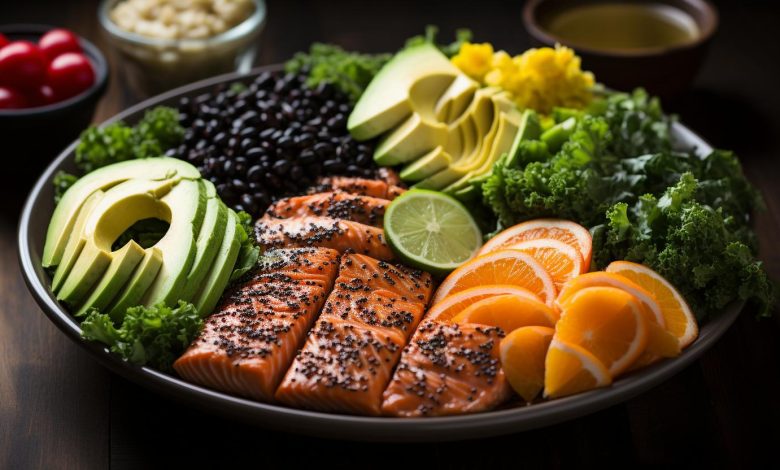The Role of Nutrition in Post-Run Recovery and Muscle Repair

Ready to take your post-run recovery and muscle repair to the next level? Well, buckle up because this article is about to drop some serious knowledge bombs on the role of nutrition in optimizing your recovery game.
From macronutrients that aid in muscle repair to micronutrients that boost overall recovery, we’ve got you covered.
Plus, we’ll dive into hydration techniques and timing your nutrition for maximum results.
Oh, and did we mention supplements? Get ready to fuel your body like a pro and bounce back stronger than ever before!
Macronutrients for Muscle Repair

To aid in muscle repair after your run, make sure you’re consuming enough macronutrients like protein and carbohydrates. These nutrients play a crucial role in optimizing recovery and promoting muscle growth. When it comes to recovery foods, protein intake is particularly important.
Protein is essential for repairing and rebuilding muscles damaged during exercise. It provides the building blocks necessary to restore muscle fibers and promote their growth. Aim to consume around 20-30 grams of high-quality protein within 30 minutes to an hour after your run. This can be achieved through sources such as lean meats, dairy products, eggs, legumes, or plant-based proteins like tofu or tempeh.
In addition to protein, carbohydrates are also vital for replenishing glycogen stores that become depleted during exercise. Consuming carbohydrates post-run helps refuel your muscles and aids in recovery. Opt for complex carbohydrates such as whole grains, fruits, vegetables, or starchy vegetables like potatoes or sweet potatoes.
Remember that proper hydration is equally important for optimal recovery. Drink plenty of water throughout the day and consider sports drinks if you’ve had an intense workout lasting longer than an hour.
Micronutrients for Recovery

Eating foods rich in vitamins and minerals can aid in the process of replenishing your body after a run. While macronutrients like carbohydrates and protein play a crucial role in post-run recovery, micronutrients should not be overlooked. These essential nutrients support various functions in the body and can help optimize muscle repair.
One important aspect to consider is nutrient timing. Consuming a combination of protein and carbohydrates within 30 minutes to an hour after your run can enhance muscle recovery. Protein sources such as lean meats, poultry, fish, eggs, dairy products, legumes, and plant-based proteins like tofu or tempeh provide the necessary amino acids for rebuilding damaged muscle fibers.
In addition to protein, certain vitamins and minerals are particularly beneficial for recovery. Vitamin C helps with collagen synthesis and tissue repair while also acting as an antioxidant to reduce exercise-induced inflammation. Good sources include citrus fruits, berries, kiwi, bell peppers, and broccoli.
Vitamin E is another powerful antioxidant that aids in reducing muscle damage caused by intense exercise. Nuts (such as almonds), seeds (like sunflower seeds), spinach, and avocados are excellent sources.
Minerals like iron contribute to oxygen transport throughout the body and support energy production. Include iron-rich foods like lean red meat, dark leafy greens (such as spinach), beans, lentils, fortified cereals or grains in your post-run meals.
Hydration Techniques for Post-Run Recovery

Make sure you’re replenishing your body with fluids after your run, as proper hydration is crucial for effective post-run recovery.
When it comes to hydration techniques for post-run recovery, here are some key points to keep in mind:
– Recovery drinks: Consider incorporating recovery drinks into your routine. These beverages are specifically designed to provide the necessary nutrients and fluids to aid in muscle repair and replenishment. Look for ones that contain carbohydrates and protein, as these can help restore glycogen stores and promote muscle protein synthesis.
– Electrolyte balance: Sweating during a run can lead to electrolyte imbalances, which can negatively impact your performance and recovery. To maintain electrolyte balance, consider consuming sports drinks or adding electrolyte tablets or powders to your water. These will help replace the sodium, potassium, magnesium, and other minerals lost through sweat.
– Listen to your body: Pay attention to signs of dehydration such as dark urine, dry mouth, fatigue, or dizziness. If you experience any of these symptoms after a run, make sure to hydrate properly by drinking enough fluids.
– Timing matters: Aim to drink fluids within 30 minutes of completing your run as this is when your body is most receptive to nutrient uptake. Additionally, continue sipping on water throughout the day to stay properly hydrated.
Remember that staying hydrated is not only important for optimal post-run recovery but also plays a crucial role in overall performance and well-being. By following these hydration techniques and maintaining an adequate fluid intake, you’ll be supporting muscle repair and ensuring a quicker recovery time.
Timing Your Nutrition for Optimal Muscle Repair

When it comes to optimizing your muscle recovery, timing is key for ensuring that your body receives the necessary nutrients at the right moment. This concept, known as optimal nutrient timing, focuses on providing your body with the right combination of nutrients after exercise to enhance post-workout recovery and muscle repair.
Post-exercise nutrition plays a crucial role in replenishing glycogen stores, reducing muscle damage, and promoting protein synthesis. Consuming a balanced meal or snack within 30 minutes to 2 hours after your workout can greatly impact your recovery process. During this window of opportunity, your muscles are most receptive to nutrient uptake, allowing for efficient refueling and repair.
To optimize muscle repair, aim for a post-exercise meal or snack that includes carbohydrates to replenish glycogen stores and protein to support muscle synthesis. Good sources of carbohydrates include fruits, whole grains, and starchy vegetables. Lean proteins like chicken breast or tofu are excellent options for aiding muscle repair.
In addition to proper timing and nutrient selection, hydration also plays a vital role in post-exercise recovery. Make sure you drink enough water before and after your workout to replace any fluids lost through sweat.
Transitioning into the subsequent section about ‘supplements for enhanced recovery and muscle repair,’ it’s important to note that while proper nutrient timing is essential for optimal recovery, some individuals may benefit from additional supplementation.
Supplements for Enhanced Recovery and Muscle Repair

Transitioning into the subsequent section about supplements for enhanced recovery and muscle repair, it’s important to note that while proper nutrient timing is essential for optimal results, some individuals may find additional supplementation beneficial.
When it comes to enhancing recovery and promoting muscle repair, there are several natural remedies and protein sources that can aid in the process. Consider these options:
– Tart cherry juice: This natural remedy has been shown to reduce inflammation and muscle soreness post-exercise due to its high antioxidant content.
– Omega-3 fatty acids: Found in fish oil or flaxseed oil, omega-3s have anti-inflammatory properties that can help speed up recovery time.
– Collagen peptides: These amino acid-rich proteins can support joint health and promote tissue repair, making them an excellent supplement for overall recovery.
– Whey protein: Known for its high digestibility and complete amino acid profile, whey protein is a popular choice among athletes looking to optimize their post-run recovery.
Incorporating these natural remedies and protein sources into your routine can provide you with the necessary nutrients to enhance your body’s ability to recover and repair after intense workouts. Remember to consult with a healthcare professional or registered dietitian before starting any new supplementation regimen.
Conclusion
Congratulations on completing your run!
Now that you know the importance of nutrition in post-run recovery and muscle repair, it’s time to put this knowledge into action.
Remember, your body needs macronutrients like protein and carbohydrates to rebuild and repair muscles. Don’t forget about micronutrients such as vitamins and minerals for overall recovery.
Stay hydrated by replenishing fluids lost during exercise. Timing is crucial, so fuel up with a well-balanced meal or snack within 30 minutes after finishing your run.
Lastly, consider supplements to further enhance your recovery process.
By taking these steps, you’ll be on your way to faster healing and stronger muscles in no time!






